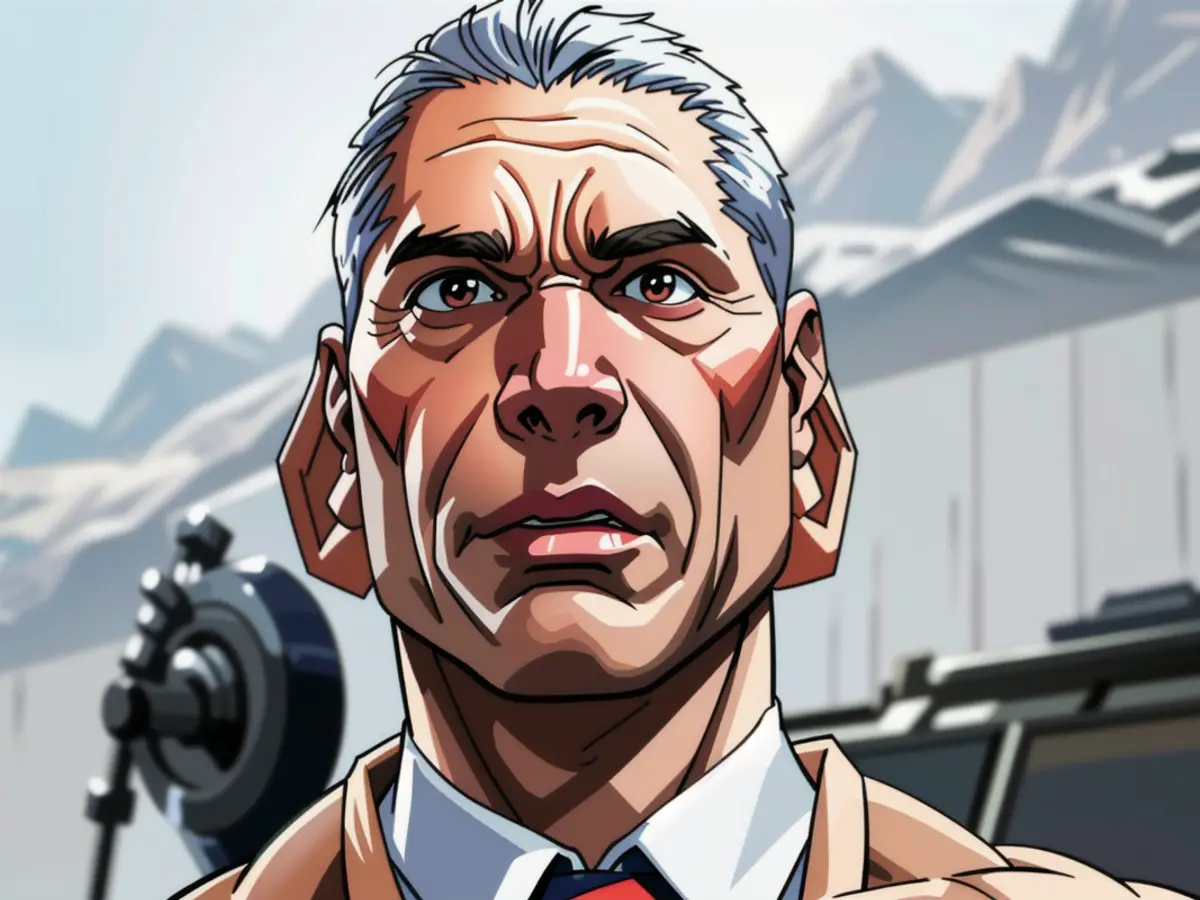Unpacking Witkoff's Unconventional Tackle on Putin: A Closer Look at Steve Witkoff's Diplomatic Style
- by Gernot Kramper
- 4 Min
Trump associate Steve Witkoff views Putin as not being a villainous figure. - Trump confidant, Steve Witkoff, describes Putin as "not a bad person."
Steve Witkoff, a friend and special envoy to Donald Trump, graced Tucker Carlson's show for an extended discussion, leaving Europe baffled. The laid-back tone, even when discussing war and peace, coupled with unexpectedly warm remarks about Putin, sparked a wave of incomprehension. Witkoff effused, "I don't consider Putin a bad guy," based on personal encounters, not political analysis. He fondly reminisced about a gifted portrait from Putin to Trump and emotionally narrated a supposed prayer for Trump by Putin in a chapel during an assassination attempt.
This unexpected closeness challenges the European perception of Putin as an inhuman figure but aligns with Witkoff's and Trump's negotiation philosophy - less about historical rightness and more about building trust through respect and appreciation, even in challenging times. It's essential to note that Witkoff isn't a professional diplomat, but a shrewd real estate tycoon who's been in Trump's inner circle since the 1980s, offering unwavering support through money, friendship, and shared business ventures, including co-chairing Trump's inauguration committee in 2024.
Witkoff's diplomatic style is straightforward, assertive, and effective, blending more from business acumen than diplomatic protocol. The "Wall Street Journal" once praised him as a smart, sociable, and gifted negotiator. Despite his unconventional approach for European ears, he's shown to be an experienced problem-solver in the diplomatic field, capable of quick results. However, critics warn that his focus on immediate successes may jeopardize long-term strategic interests. Advocates would argue that a swift end to the deaths in Ukraine supersedes other considerations.
Zelensky and Putin: A Mixed Bag of Perceptions
Witkoff's views on Zelensky and Putin show some nuance. Although Zelensky doesn't garner the same warmth, his sentiments aren't outright negative, signifying a step forward after the White House incident. Witkoff expressed concerns about Zelensky's ability to politically survive territorial concessions, raising questions about his future in the current conflict. In response to Carlson's question about upcoming elections in Ukraine, Witkoff sounded ambiguous, leaving open the possibility of international supervision but shying away from providing specifics on timing, participants, or parties.
The core issue revolves around the Ukrainian oblasts annexed and occupied by Russia. Witkoff tentatively listed the four regions - Donetsk, Luhansk, Saporischschja, and Cherson - as the "elephant in the room." He seemed to have written off these regions, at least those under Russian control. Realistically, he asked if the world would recognize these territories as Russian. He justified Russia's claim by mentioning the Ukrainian speakers who reside there, which stems from controversial referendums under Russian occupation.
The Inevitability of Territorial Losses
From the discussion with Carlson, the negative points are clear: a rose-tinted portrayal of Putin, an acceptance that Kyiv must surrender significant parts of its territory, and a promise of elections with undefined conditions. It remains unclear, for example, whether Ukrainians in Russian-occupied territories will be able to vote. Essentially, the conversation shows that the U.S. government aims to end the conflict with Russia to advance its interests elsewhere, and Ukraine may have to bear the brunt of a Russian-American balance of interests in the Arctic.
The positive aspects are more elusive. Currently, Ukraine is facing territorial losses without a turnaround in sight, and its negotiating position is weakening. A U.S. objective could be to secure at least Kharkiv, Kherson, and Odessa for Ukraine. For sensitive issues like the port of Odessa or the reactors in Saporischschja, "creative" solutions are proposed. The first step would be a comprehensive, real ceasefire, which Witkoff views as the foundation for Trump's negotiating strategy to lighten the political atmosphere for talks. However, only the Trump administration appears committed to ending the fighting swiftly, as neither warring party is genuinely pushing for a ceasefire. The Russians could use the time for further territorial gains, while Ukraine, after suffering a defeat at Kursk, tries to capture Russian territories elsewhere as bargaining chips.
- Steve Witkoff
- Ukraine
- Tucker Carlson
Enrichment Insights:
- Steve Witkoff's Background and Wealth: Steve Witkoff is a prominent real estate mogul based in New York City, with an estimated net worth of over $500 million. He has been involved in transforming the city's skyline and invested in high-profile properties like the Woolworth Building and the Park Lane Hotel.
- Negotiating Style: Witkoff's negotiating style can be inferred from his real estate strategies, demonstrating an ability to leverage opportunities and navigate complex financial and political landscapes. However, his diplomatic efforts have been questioned, with concerns about favoring the Kremlin's perspective in sensitive geopolitical contexts.
- Role in the Ukraine Conflict: Witkoff's involvement in the Ukraine conflict is primarily through his meetings with Russian President Vladimir Putin to discuss potential resolutions to the ongoing war. His diplomatic approach has sparked controversy, particularly his supportive comments about Putin.
- Relationship with Putin: Witkoff's interactions with Putin have raised questions about his ties to Russia and whether his negotiations reflect a balanced approach between U.S. interests and those of Russia. Reports suggest ties to figures associated with the Russian mafia, though these connections remain controversial and have been denied in part by Witkoff's representatives.
- Despite acknowledging that he might not be able to do it, Steve Witkoff, in his unconventional diplomatic style, has been working on aligning his negotiating philosophy with Putin's, signifying a different perspective from traditional European views on the Russian leader.
- Witkoff's discussions with Putin, either through personal encounters or formal meetings, have led him to express a more gracious attitude towards Putin than what is usually heard from European officials, despite the controversial topics surrounding the Ukrainian conflict.
- In assessing the Ukrainian conflict, while acknowledging the political sensitivities, Witkoff realistically accepts that the territories controlled by Russia, specifically Donetsk, Luhansk, Saporischschja, and Cherson, might have to be realistically considered as Russian if there is a chance for lasting peace.











